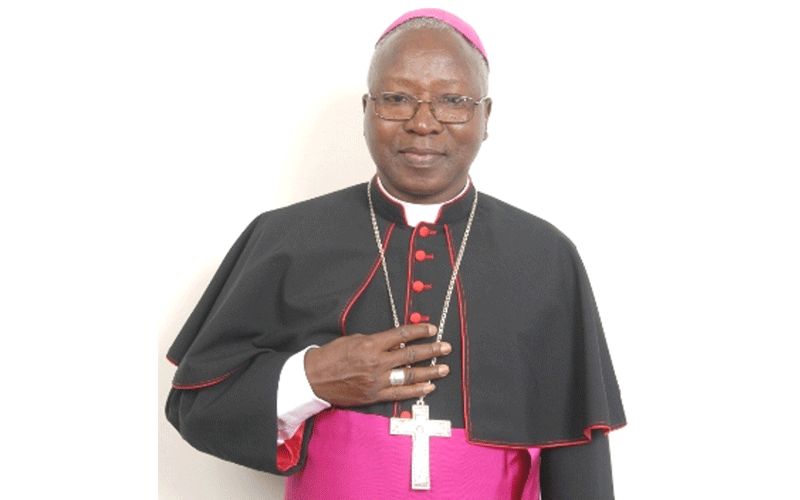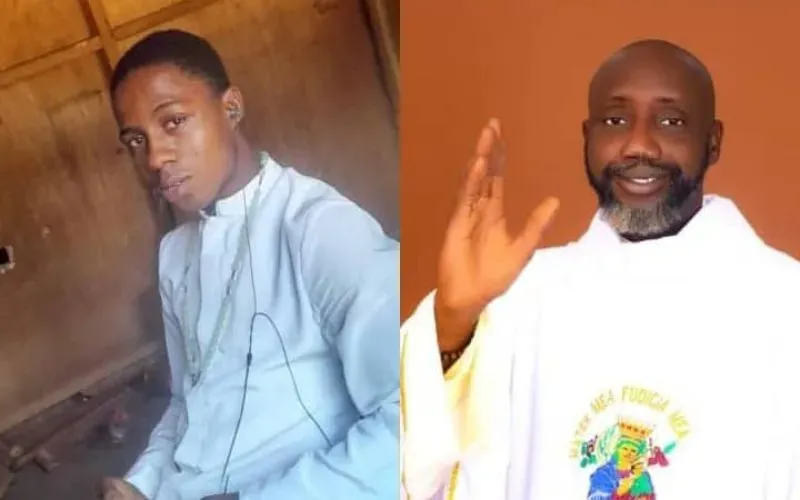Despite the difficult situation, the Local ordinary of Ouagadougou Archdiocese says, “The Church is trying to remain in solidarity and is trying to give a little hope also to all these distressed populations, so that terrorism can and must come to an end thanks to God and thanks to the solidarity of others.”
He highlighted the “need to pray constantly to the Lord, the prince of peace” for an end to violence in the continent.
“The Church's first response, as I often say is to put emphasis on prayer, as our Kalashnikov's is prayer,” he emphasized.
“In the Archdiocese of Ouagadougou, for example, we have organized a year-long prayer chain that began in the first week of Advent and will end on the feast of Christ the King,” Cardinal Ouédraogo explained.
“This is an example of an effort lived by the Archdiocese of Ouagadougou,” he said and added, ‘Each diocese is in this same dynamism of prayer. Peace is the fruit of the efforts of men. Hence the need to organize ourselves, to remain in solidarity at the local, regional and international levels.”
(Story continues below)
Recounting another concrete action taken by the Catholic Church in Burkina Faso, the Church Leader said, “Last January 10, we organized a day of prayer at the Marian shrine of Yagma, some 10 kilometers from the capital, a day dedicated to the displaced.”
“We prayed for all the victims, be they Christians, Muslims, Protestants,” Cardinal Ouédraogo said and added, “Many who attended this prayer event were Muslims who came from the far north, from the so-called Sahel region, especially near the borders of Mali and Niger. This solidarity is manifested by individuals or groups.”
According to the Burkinabe Cardinal, “Prayer does not prevent the church from developing gestures of solidarity to come to the aid of populations.”
“Whether it is housing, food, clothing, schooling for the children, these are all challenges and we try to raise awareness locally, to call for international solidarity,” he added.
The governments of Burkina Faso and Mali are seeking to begin a dialogue process, which involves the main jihadist groups in the West African countries.
Mali’s President Ibrahim Boubacar Keita recently announced that his government was ready to hold talks with al-Qaida-linked militants who have been operating in northern and central Mali since 2012.
Against this backdrop, Cardinal Ouedraogo noted dialogue with the terrorist will be difficult since their leaders cannot be identified.
“The dialogue advocated by some with the jihadists first of all who are they? who are the leaders? where are they? are they willing to dialogue?” he probed
“In our preaching, “We implore them insofar as they can still hear us to lay down their arms and that together we find other ways and means to sit down together, see what is wrong and find appropriate solutions to our challenges. But this remains a great challenge.”
Cardinal Ouédraogo also appealed to the press to be part of this fight saying, “I hope that you men of the media will be the voice of the voiceless. The voice of those innocent people unnecessarily massacred. Be the voice of all those poor children who are deprived of School.”
During this prayerful season of lent, the Burkinabe Cardinal has called for conversion amongst the various terrorists groups on the continent.
They need to seek the path of conversion, to be reconciled with each other. All of these should bring us not only closer to God, but also closer to each other.”
“We are trying to further develop solidarity initiatives to show our closeness to those who are suffering. Relieving suffering as much as doing this little bit, but this can only be done with the contribution of sons and daughters in Africa,” Cardinal Ouédraogo emphasized.
Jude Atemanke is a Cameroonian journalist with a passion for Catholic Church communication. He holds a Bachelor’s Degree in Journalism and Mass Communication from the University of Buea in Cameroon. Currently, Jude serves as a journalist for ACI Africa.








